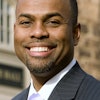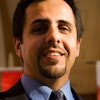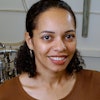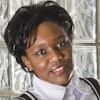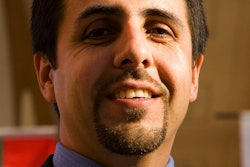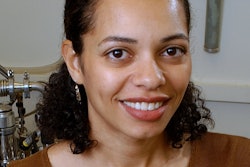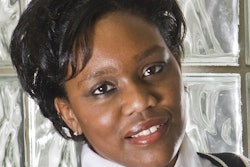It’s no wonder that Dr. Pablo Mitchell likes to explore the intersections of diverse academic disciplines. As a native of New Mexico and a person of mixed heritage — his mother is from Panama, his father is Anglo — who studied in the East, Southwest and Midwest, he brings a broad perspective to his studies of American history.
Mitchell’s love of history was sparked in childhood, when he read James Michener’s Centennial and other historical novels. He writes with a novelist’s attention to detail and character, doing such a good job that his first book, Coyote Nation: Sexuality, Race, and Conquest in Modernizing New Mexico, 1880-1920, won the 2007 Ray Allen Billington Prize, awarded biennially by the Organization of American Historians for the best book in American frontier history. (“Coyote” is slang for a person of mixed Anglo and Latino
background.)
Mitchell credits much of his early academic success to receiving a Mellon-Mays Undergraduate Fellowship and to the mentoring he received as a MMUF fellow. Now he can return the favor to incoming MMUF students at Oberlin. He also is quick to thank his academic advisors and other mentors who encouraged him to work hard on his writing and steered him toward graduate studies at the University of Michigan, where he joined a diverse body of Latino students from many parts of the country. Mitchell adds that Latino students at the college are encouraged to develop a “pan-ethnic sense of what it is to be Latino.”
At Michigan he was also encouraged by faculty member Dr. Carroll Smith-Rosenberg to apply theories of sexuality to his own work as a historian. His current book, with the working title West of Sex: The Making of Latino America 1900-1930, continues to explore Latino sexuality.
“I am very interested in interdisciplinary, intersectional approaches,” Mitchell says. “I am also interested in sexuality and gender. Traditional studies in sexuality, if they did look at race, looked at it as a Black-White binary, so I wondered, where does Latino history fit into that? In terms of Latino history, not a lot of attention was being paid to sexuality and to how sexual differences created inequalities in communities.”
As Mitchell conducts his research, he relies on an unusual source: transcripts of criminal court cases involving Latinos, because so little has been written about Latino culture in the early 20th century. Cases that were argued in the higher courts had to be transcribed, producing a verbatim record that tells Mitchell about the biases and conflicts of the people involved.
“Those transcripts are a hundred pages sometimes, of question-answer, question-answer,” he says. “They have such rich detail about how people lived their lives, and how people spoke, as well. You get a sense of whom the police are targeting in terms of their sexual habits, which people are getting prosecuted, which people aren’t; and I think that has a lot to do with class and social differences.”
After completing this book, Mitchell plans to write a history of people of mixed ancestry in the United States. It’s an aspect of American history he has experienced firsthand, and another gap he’s identified in the written records. He plans to focus on “theoretical ways of what it means to be between cultures and move back and forth.”
The narrative threads that drew Mitchell into history in the first place are still strongly at work, as he continues to research the issues that bring people together and also keep them apart.
“There are still some pretty clear boundaries, and people who cross them are reminded frequently that they are crossing them,” he says. “I am interested in those people’s lives and their stories.”
Title: Associate Professor, Department of History, and Director, Comparative American Studies Program, Oberlin College
Education: Ph.D., History, University of Michigan; M.A., History, University of New Mexico; B.A., History, Swarthmore College

